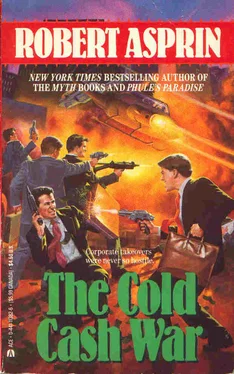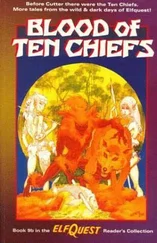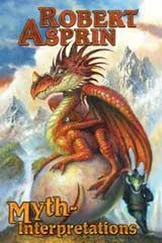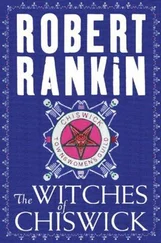Robert Asprin - The Cold Cash War
Здесь есть возможность читать онлайн «Robert Asprin - The Cold Cash War» весь текст электронной книги совершенно бесплатно (целиком полную версию без сокращений). В некоторых случаях можно слушать аудио, скачать через торрент в формате fb2 и присутствует краткое содержание. Жанр: Фантастика и фэнтези, на английском языке. Описание произведения, (предисловие) а так же отзывы посетителей доступны на портале библиотеки ЛибКат.
- Название:The Cold Cash War
- Автор:
- Жанр:
- Год:неизвестен
- ISBN:нет данных
- Рейтинг книги:3 / 5. Голосов: 1
-
Избранное:Добавить в избранное
- Отзывы:
-
Ваша оценка:
- 60
- 1
- 2
- 3
- 4
- 5
The Cold Cash War: краткое содержание, описание и аннотация
Предлагаем к чтению аннотацию, описание, краткое содержание или предисловие (зависит от того, что написал сам автор книги «The Cold Cash War»). Если вы не нашли необходимую информацию о книге — напишите в комментариях, мы постараемся отыскать её.
The Cold Cash War — читать онлайн бесплатно полную книгу (весь текст) целиком
Ниже представлен текст книги, разбитый по страницам. Система сохранения места последней прочитанной страницы, позволяет с удобством читать онлайн бесплатно книгу «The Cold Cash War», без необходимости каждый раз заново искать на чём Вы остановились. Поставьте закладку, и сможете в любой момент перейти на страницу, на которой закончили чтение.
Интервал:
Закладка:
COURT MARTIALS THREATENED
Armed Forces officials announced today that any military personnel taking part in the planned demonstrations will be arrested and tried for taking part in a political rally, whether or not they are in uniform.
GOVERNMENT-CORPORATE TALKS SUSPENDED
Negotiation sessions seeking peaceful settlement between the combined corporations and the united free world governments came to an abrupt halt today when several government negotiators walked out of the sessions. Informed sources say that the eruption occurred as a result of an appeal on the part of the corporations to the governments to "call off a situation involving needless bloodshed which the government troops could not hope to win." It is believed that what they were aluding to were their alleged "superweapons" which the governments continue to discount. "A weapon is only as good as the man behind it," a high-ranked U.S. Army officer is quoted as saying. "And we have the best troops in the world." With scant hours remaining before the deadline (continued p. 7)
20
Lieutenant Worthington, U.S. Army, was relieved as the convoy pulled into the outskirts of town. He only wished his shoulders would relax. They were still tense to the point of aching. He tried to listen to the voices of the enlisted men riding in the back of the truck as they joked and sang, but shrugged it off in irritation.
The bloody fools. Didn't they know they had been in danger for the last hour? They were here to fight mercenaries, hardened professional killers. There had been at least a dozen places along the road through the jungle that seemed to be designed for an ambush, but the men chatted and laughed, seemingly oblivious to the fact the rifles on their laps were empty.
The lieutenant shook his head. That was one Army policy to which he took violent exception. He knew that only issuing ammunition when the troops were moving into a combat zone reduced accidents and fatal arguments, but dammit, for all intents and purposes, the whole country was a combat zone. It was fine and dandy to make policies when you were sitting safe and secure at the Pentagon desk looking at charts and statistics, but it wasn't reassuring when you were riding through potential ambush country with an empty weapon.
He shot a guilty sidelong glance at the driver. He wondered it the driver had noticed that Worthington had a live clip in his pistol. Probably not. He had smuggled it along and switched the clips in the john before they got on the trucks. Hell, even if he had noticed, he probably wouldn't report him. He was probably glad that someone in the truck had a loaded weapon along.
They were in town now. The soldiers in back were whooping and shouting crude comments at the women on the sidewalk. Worthington glanced out the window, idly studying the buildings as they rolled past. Suddenly he stiffened.
There, at a table of a sidewalk cafe, were two mercenaries in the now-famous kill-suits leisurely sipping drinks and chatting with two other men in civilian dress. The lieutenant reacted instantly.
"Stop the truck!"
"But sir..."
"Stop the truck, dammit!"
Worthington was out of the truck even before it screeched to a halt, fumbling his pistol from its holster. He ignored the angry shouts behind him as the men in back were tossed about by the sudden braking action, and leveled his pistol at the mercenaries.
"Don't move, either of you!"
The men seemed not to hear him, continuing with their conversation.
"I said, Don't move!"
Still they ignored him. Worthington was starting to feel foolish, aware of the driver peering out the door behind him. He was about to repeat himself when one of the mercenaries noticed him. He tapped the other one on the arm, and the whole table craned their necks to look at the figure by the truck.
"You are to consider yourselves my prisoners. Put your hands on your head and face the wall!"
They listened to him, heads cocked in alert interest. When he was done, one of the mercenaries replied with a rude gesture of international significance. The others at the table rocked with laughter; then they returned to their conversation.
Worthington suddenly found himself ignored again. Reason vanished in a wave of anger and humiliation. Those bastards!
The gun barked and roared in his hand, startling him back to his senses. He had not intended to fire. His hand must have tightened nervously and...
Wait a minute! Where were the mercenaries? He shot a nervous glance around. The table was deserted, but he could see the two men in civilian clothes lying on the floor covering their heads with their arms. Neither seemed to be injured. Thank God for that! There would have been hell to pay if he shot a civilian. But where were the mercenaries?
The men were starting to pile out of the truck behind him, clamoring to know what was going on. One thing was sure-he couldn't go hunting mercenaries with a platoon of men with empty rifles.
Suddenly a voice rang out from the far side of the street.
"Anybody hurt over there?"
"Clean miss!" rang out another voice from the darkened depths of the cafe.
The lieutenant squinted, but couldn't make out anyone.
"Are they wearing kill-suits?" came a third voice from farther down the street.
"As a matter of fact, they aren't!" shouted another voice from the alley alongside the cafe.
"That was live ammo?"
"I believe it was."
The men by the truck were milling about, craning their necks at the unseen voices. Worthington suddenly realized he was sweating.
"You hear that, boys? Live ammo!"
"Fine by us!"
The lieutenant opened his mouth to shout something, anything, but it was too late. His voice was drowned out by the first ragged barrage. He had time to register with horror that it was not even a solid hail of bullets that swept their convoy. It was a vicious barrage of snipers, masked marksmen. One bullet, one soldier. Then a grenade went off under the truck next to him and he stopped registering things.
There was no doubt in anyone's mind as to the unfortunate nature of the incident. For one thing, one of the men in civilian clothes sharing a drink with the mercenaries was an Italian officer with the Combined Government Troops who corroborated the corporations' claim the action was in response to an unprovoked attack by the convoy.
The fourth man was a civilian, a reporter with an international news service. His syndicated account of the affair heaped more fuel on an already raging fire of protest on the home fronts against the troops, intervention in the corporate wars.
Even so, the corporations issued a formal note of apology to the government forces for the massacre. They further suggested that the government troops be more carefully instructed as to the niceties of off-hours behavior to avoid similar incidents in the future.
An angry flurry of memos did the rounds of the government forces trying vainly to find someone responsible for issuing the live ammo.
The mayor of the town was more direct and to the point. He withdrew the permission for the American troops to be quartered in the town, forcing them to bivouac outside the city limits. Further, he signed into law an ordinance forbidding the Americans from coming into town with any form of firearm, loaded or not, on their person.
This ordinance was rigidly enforced, and American soldiers in town were constantly subject to being stopped and searched by the local constable, to the delight of the mercenaries who frequently swaggered about with loaded firearms worn openly on their hips.
Had Lieutenant Worthington not been killed in the original incident, he would have doubtless been done in by his own men-if not by the troops under him, then definitely by his superiors.
Читать дальшеИнтервал:
Закладка:
Похожие книги на «The Cold Cash War»
Представляем Вашему вниманию похожие книги на «The Cold Cash War» списком для выбора. Мы отобрали схожую по названию и смыслу литературу в надежде предоставить читателям больше вариантов отыскать новые, интересные, ещё непрочитанные произведения.
Обсуждение, отзывы о книге «The Cold Cash War» и просто собственные мнения читателей. Оставьте ваши комментарии, напишите, что Вы думаете о произведении, его смысле или главных героях. Укажите что конкретно понравилось, а что нет, и почему Вы так считаете.









